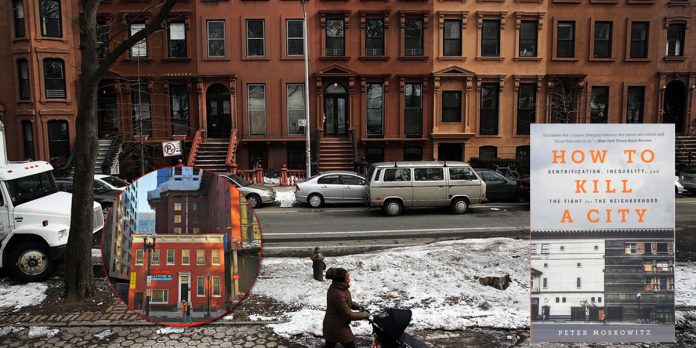Urban Planning Can Fight Gentrification With Affordable Housing
Radical Urban Planning Can Fight Gentrification With Affordable Housing
Urban planning can adopt inclusionary zoning as policy resulting in cities that allow all citizens to grow and enjoy a well rounded urban environment.
Gentrification is often referenced as being beyond our control, that replacing old urban houses with identical high-end condos is a law of nature. We sigh as historically Black, ethnically diverse, and immigrant communities are displaced, destroying social infrastructure that was built up over generations.
But it isn’t inevitable; it’s the result of decades of policies that reflect the power of wealth in shaping our urban landscapes. So why do city governments in the United States usually do such a poor job of balancing people’s rights with property rights?

Samuel Stein, a doctoral student at City University of New York whose work focuses on urban planning and gentrification, takes on that question in his well-received new book, Capital City: Gentrification and the Real Estate State (Verso, 2019). The answer has to do with money, history, and the economy. As North America deindustrialized from the mid-20th century on, capital began investing in land and buildings, “the literal and figurative space left by urban industrial flight.” Real estate is now a $217 trillion industry, Stein writes, forming 60% of global assets. We’re living in “a real estate state,” where real estate interests with capital to invest have undue influence in city planning decisions.
Stein sees urban planners as basically nice people with good intentions. They want to make beautiful cities that are good places to live, but in practice their work is directed by the imperative to make cities profitable. Citizens who’ve attempted to have a voice in their city’s housing and planning policies may appreciate Stein’s point: “Planners operate in a system that must appear open to the public, while simultaneously guaranteeing that ultimate power resides in the hands of propertied elites. It can be a really shitty job.”

Instead, Stein wants urban planning to democratize cities, making them places that belong to everyone, not just an economic and racial elite. His analysis of what fuels gentrification and his willingness to think outside the neoliberal box lead him to some solutions that defy conventional wisdom.![]()
Consider supporting AMIBC™. Contribute by clicking on the advertisers and sponsors featured on AMIBC™ and please utilize them. Readers from around the world, like you, make our work possible. We need your support to deliver quality, vetted, investigative journalism – and to keep it open for everyone. At a time when factual, honest reporting is critical, your support is essential in protecting our editorial independence.
The narratives and issues impacting all Americans is tantamount to the AMIBC™ platform. Every contribution, however big or small, is valuable for our future. Make sure to join the AMIBC Founders Club to maximize the total advantage of being a subscriber.
































